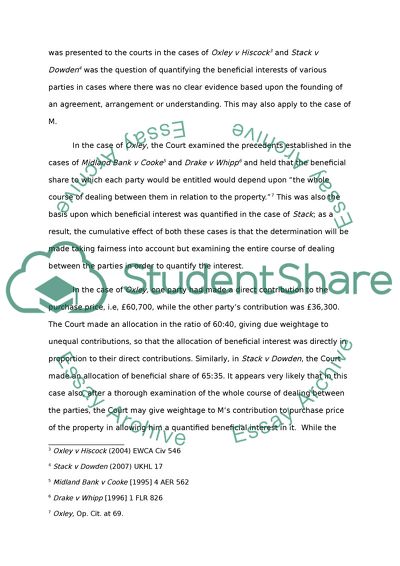Cite this document
(The Cases of Midland Bank v Cooke and Drake v Whipp: the Parties and Case Study - 1, n.d.)
The Cases of Midland Bank v Cooke and Drake v Whipp: the Parties and Case Study - 1. Retrieved from https://studentshare.org/law/1720717-land-law-coursework
The Cases of Midland Bank v Cooke and Drake v Whipp: the Parties and Case Study - 1. Retrieved from https://studentshare.org/law/1720717-land-law-coursework
(The Cases of Midland Bank V Cooke and Drake V Whipp: The Parties and Case Study - 1)
The Cases of Midland Bank V Cooke and Drake V Whipp: The Parties and Case Study - 1. https://studentshare.org/law/1720717-land-law-coursework.
The Cases of Midland Bank V Cooke and Drake V Whipp: The Parties and Case Study - 1. https://studentshare.org/law/1720717-land-law-coursework.
“The Cases of Midland Bank V Cooke and Drake V Whipp: The Parties and Case Study - 1”, n.d. https://studentshare.org/law/1720717-land-law-coursework.


